- Home
- Dornford Yates
As Berry and I Were Saying Page 2
As Berry and I Were Saying Read online
Page 2
“‘Gentlemen of the jury,’ he said, ‘are you agreed upon your verdict?’
“The foreman rose and replied.
“‘We are.’
“‘Do you find the prisoner guilty or not guilty?’
“‘Guilty.’
“A rustle ran round the court.
“‘And that is the verdict of you all?’
“‘Yes.’
“Coles was whispering to counsel.
“‘What’s the charge?’
“‘Murder.’
“‘Oh, my God,’ breathed Coles, and got half out of his seat.
“‘No, no, man. It’s too late now.’
“Coles sank back and laid a hand on my arm.
“The Clerk of Arraigns ‘called on’ the prisoner.
“‘You have been found guilty of murder. Have you anything to say why the Court should not give you judgment of death?’
“The prisoner replied.
“‘No, sir.’
“Then an usher or the Judge’s Crier made a proclamation, calling upon all to keep silence ‘upon pain of imprisonment’. As he did so, the doors of the court were locked. I think I shall always hear the clash of the wards.
“I looked at the Judge.
“Standing behind him, his clerk had laid the black cap on his wig. I can’t remember whether it was a square or a circle of silk, but it hung down all round his face and hid his wig, and I must confess that it lent his countenance a truly terrible aspect. By his side was standing his chaplain, gowned in black. He addressed the prisoner by name and then passed sentence of death in the world-famous words. And when he had done, the chaplain said ‘Amen’.
“For a moment the silence persisted: then everyone seemed to stir. A warder touched the prisoner on the shoulder. At once he turned away from the bar, to disappear down the stairs.
“When I looked at the Bench again, the black cap and the chaplain were gone and the Judge was leaning down to talk to the Clerk of Arraigns.
“And so I can truthfully say that I saw and heard a poor man sentenced to death, while he was standing at the bar at which Jack Sheppard once stood. But I am more than glad to be able to add that he was later reprieved.”
“Two warders?” said Berry.
“Always two. Sometimes more. For a woman, wardresses.”
“Does the death sentence worry the prisoner?”
“I’ve only once seen that – and I’ve seen and heard it passed a good many times.”
“Does it worry the Judge?”
“I only know of one case. And then the prisoner made a Masonic sign. The Judge was a Mason, too: and it shook him up. He’d no right to do it, of course.”
“Coles Willing was worried?”
“Yes. He never meant me to hear such a thing as that.”
“But it didn’t worry you?”
“I’m afraid it didn’t,” said I. “It never has. It’s a very solemn moment. I can’t exactly describe it; but you have the impression that Time is standing still.”
“I couldn’t bear it,” said Jill. “The poor, poor man.”
“I’m sure you couldn’t, my sweet. But don’t forget that he’s bought it. He showed his victim no mercy – don’t forget that.”
“Well, that’s history,” said Daphne.
“A side-light on history,” I said. “The dock went to Madame Tussaud’s. And now it’s Berry’s turn.”
“Don’t rush me,” said Berry. “My gorge hasn’t fallen yet. And where did the davenports go to? The National Sporting Club? Of course, all this crime stuff is going to debase the book.”
“Don’t be absurd,” said Daphne. “The value of it is that it’s perfectly true.”
“Do you suggest,” said her husband, “that that virtue will not distinguish such contributions as I am permitted to make?”
“Er, no,” said Daphne.
“I should hope not,” said Berry. “It is not my practice to deceive. If a fellow asks me for a fish – well, he mayn’t get Rainbow Trout, but he won’t get a serpent. I remember one night at Cannes. I’d just won three francs at Boule. Goo-goo was showing Boy—”
“I don’t remember Goo-goo,” I said.
“Oh, you must remember Goo-goo. The best legs in – Or was it Chocolat?”
“Go on,” said Jill, squeezing my arm. “She was showing Boy…”
“Well, Aquamarine and Boy were—”
“It was agreed,” said I, “that we should suppress our personalities. You’ve given Paris a show. What about incomparable London Town?”
“Ah,” said Berry. “That was a city, that was. What did Blucher say, as he rode through the roaring streets after Waterloo? ‘What a city to sack!’ So completely German – he was our guest – and so completely true. She was a fine old jade… Weather could not tarnish her magnificence. Grave or gay, there was always a majesty about her that nothing could take away. I think I saw her at her best one morning in June…
“Within the week King George the Fifth of England was to be crowned. So his subjects repaired to London, and London was very full. All for whom room could be found were staying within her gates. Since the weather was set fair, it follows that the streets were congested all day long: and when I say congested, I mean it – never before or since have I seen such a weight of traffic in London’s lanes. And the traffic was gay, for every taxi was open and there wasn’t a bus on the streets with a covered top. Silk hats and flowered dresses and parasols, nosegays and button-holes – and the great sun lighting it all from a cloudless sky. It was, indeed, a brilliant spectacle: but it was more than that, for its brilliance was rarefied.” Berry turned and looked at me. “Is ‘rarefied’ right?”
“I can’t imagine,” said I, “a more appropriate word.”
“Good. Now the thing was this. The peers had been summoned, as usual, to attend the Coronation in state: and all who still had their state coaches were asked to bring them to Town and drive to the Abbey in those fine equipages. As many as could complied. The state coaches were greased and furbished and sent to London by rail: liveries were procured: handsome horses were found. But the horses of 1911 were not accustomed to drawing an old state coach and many had hardly seen the London streets; and so it was felt that such equipages must be ‘run in’, if I may put it that way, before the day of the Coronation itself – with the very happy result that, on every day of that week, one had the unforgettable privilege of seeing them adding to the traffic which congested the West End streets. The wigged coachman, square on his hammercloth, clad in his gorgeous, eighteenth-century dress – scarlet or blue or yellow, all laced with gold; two powdered footmen on the tail-board – the Duke of Wellington had three – similarly attired, and the great coach, its coats-of-arms glowing in the sunshine, flashing and swaying behind its handsome pair. Museum pieces in action, period stuff, ‘mucking in’ with the buses and taxis and private cars… It was a sight for sore eyes, and that’s the truth.
“One morning I had an appointment in Rutland Gate. I had to see old John —, much earlier than I liked. But he was run off his feet and could give me no other time. I left his house at ten and, crossing Kensington Road, I boarded a bus. I got a good seat on the top and settled down. My next appointment was at Hill’s at half-past eleven o’clock. Yes, I was going to have my hair cut. Ordinarily such a journey to Old Bond Street would have taken a quarter of an hour: on that lovely June morning it took nearly an hour and a half: but not one moment was dull. Hyde Park Corner presented an astonishing sight, an ocean of traffic as far as the eye could see, full of slow-moving currents sliding all ways and giving place to cross currents from time to time. How the police controlled it, I’ve no idea. It was most remarkable. We proceeded along Piccadilly, the blocks becoming longer in duration the further we went. But that didn’t matter to me, for Piccadilly was glorious, the Green Park was looking its best, there wasn’t a cloud in the sky and all the world was in a holiday humour. At last we reached Old Bond Street and I got down. I walked along
to Hill’s, and there was Brown all ready to do his stuff.”
“Brown,” said I, “was one of the old school.”
“So he was,” said Berry. “Brown was an institution. He commanded my great respect. A first-rate master-barber and a most charming man.”
“He ought to have written his reminiscences.”
“So he ought,” said Berry. “’Member how old Lord — used to slip him a penny at Christmas and say ‘Here’s half a crown’? Which reminds me, that very morning a nice-looking fellow comes up, while Brown’s drying my hair. ‘May I speak to Brown?’ says he. ‘Of course,’ I said. So he asks if Brown can take him that afternoon. Brown says no, he’s sorry, he’s booked right up. ‘But,’ he says, ‘I can take you in five minutes’ time, sir. My next appointment isn’t till half past twelve.’ ‘No, no,’ said the man, ‘not now.’ I saw him glance down. ‘I must go home first. Are you sure you can’t fit me in this afternoon?’ Brown shook his head. ‘I’m very sorry, sir.’ Well, he made some other appointment and went his way. As Brown picked up his brushes, ‘D’you know, sir,’ he said, ‘why he wouldn’t be done after you?’ ‘I assume,’ said I, ‘I assume he’s got an engagement.’ Brown smiled. ‘No, sir,’ he said. ‘But he won’t sit down in those trousers. He’s certain pairs of trousers in which he will not sit down. Spoils their set, he says.’ He was perfectly right, of course: but few would have cared to be so particular.
“Well, Brown finished me off, and I put on my collar and tie and he slid me into my coat. Then I thanked him and said goodbye and left the shop. I decided to walk to the Club. So I strolled back to Piccadilly. I got to the corner of Old Bond Street and stood there a moment, wondering how to cross. ‘Waiting for you, sir,’ said a voice. It was a bus conductor, laughing all over his face. By God, it was the bus I had left half an hour before. And it hadn’t broken down: it was only waiting to move.”
“What ever,” said Jill, “what ever did people do? People, I mean, who simply had to get there.”
“They walked or they went underground. Of course, no end of appointments simply went west. But nobody seemed to mind. Those were the tolerant days. I never had a passport till 1919. Before the first war, you could walk into Victoria Station, take a ticket for Constantinople and alight there three days later without any fuss. For a five-pound note you could spend a whole week at Lucerne. The journey both ways was included and so were all sorts of excursions about the Lake. And fed like a fighting cock. And the stuff that was sold in the shops was very good. On the outbreak of war I purchased a pair of braces – simple webbing and leather – for eighteen pence. And I gave up wearing those braces in 1938. That’s twenty-four years’ service for eighteen pence. Is anyone going to deny that those were the days?”
“No one,” said everyone.
Berry regarded his wife.
“One evening we dined with old Stakely. He used to give his dinners at The Berkeley, because he lived in chambers in Jermyn Street. He stopped me the following week, as I was leaving the Club. ‘How much champagne,’ he said, ‘did we drink on Thursday last?’ It was a dinner for eight. After a slight calculation, ‘I’d put it at six,’ I said. ‘That’s what I make it,’ he said. He began to laugh. ‘They render my bill on Mondays. On Monday last they never rendered a bill. I stopped at The Berkeley on Tuesday, to ask them why. They sent for the Manager. “That’s quite right, sir,” he says. “You had cause for complaint.” “I know,” said I. “The woodcock was overdone.” (It had been – very slightly, and Stakely had made a fuss.) “What of that?” says I. “It was overdone, sir, and you had cause for complaint. In that case we make no charge.” “But the champagne,” I said. The Manager bowed. “Sir,” he said, “the dinner was not as it should be. Next time you honour us there will be no fault.” Now that’s what I call service. And it paid them hand over fist, for all of us swore by The Berkeley from that time on.”
“No one will believe that,” said Daphne.
“What does that matter?” said Berry. “We know it’s true.”
“Berry’s right,” said I. “Whether people believe us or not is their affair. And if they don’t, I can’t blame them, for times have changed. A novel cost four and sixpence before the first war: whether I wrote it or Kipling, the price was the same. A bottle of excellent whiskey cost four and sixpence, too.”
“One night,” said Berry, “I had come up for some dinner. I think it was at The Goldsmiths’ – I can’t be sure. Anyway, I met David —: he was an ARA. When the show was over, he asked me and one or two others back for a drink. He lived in St John’s Wood, as many artists did. It was not a very big house, but it was most attractive. And he had some beautiful things.
“After he’d shown us round –
“‘Who’s your landlord?’ said someone. ‘Or is this house your own?’
“‘Well, I haven’t bought it,’ says David, ‘and who my landlord is, I haven’t the faintest idea. I’ve lived here for twenty-two years and I’ve never been asked for rent.’
“As soon as we could speak –
“‘And rates?’ says somebody.
“David shook his head.
“‘Never a penny,’ he said. ‘I think I’m off the map.’
“And that was a damned nice house – in — Road.”
“Incredible,” said Daphne.
“But true,” said Berry. “People used to live and let live before the first war. I remember it well.” He looked at me. “Carry on, partner,” he said.
“Not after that,” said I. “I propose to retire.”
“That’s right,” said my sister, rising. “It’s nearly half past twelve.”
“Have a heart,” said Berry. “The golden fountain is just beginning to play.” Again, he regarded me. “’Member that night in Venice when you and the Duchess got lost?”
“Neither do you,” said I. “Besides, it’s my turn.”
“Yes?” said my wife.
“Rowed past her palace,” said Berry. “And never found out their mistake for nearly an hour and a half. That’s Venice – that was.”
“Oh, Boy,” said Jill.
“That,” said I, “is romance. And romance is a tale whose scene and incidents are remote from everyday life.”
Daphne had reached the door.
“Do remember,” she said, “that Pony’s coming tomorrow at ten o’clock.”
“My God, so he is,” said Berry. “Blast his neck.” He got to his feet. “Spain’s the country, you know. No business is done in Spain before mid-day. I mean, that gives you a chance.”
2
“I knew there was something,” said Jill. “Wigs. Last night you said that the black cap covered the Judge’s wig. I always thought that Judges never wore anything but those very big wigs.”
“Oh, no, my sweet,” said Berry. “Judges are almost invariably clothed. I suppose it’s a question of dignity.”
“Boy, you know what I mean.”
“So does he,” said I. “Never mind. It is a mistake to think that Judges always wear what is called ‘the full-bottomed wig’. Artists often make it – who illustrate tales, I mean. And I’ve seen it made on the screen. There are, in fact, three wigs which are worn by the Bench and the Bar. One is the full-bottomed wig, which is the one you mean. A Judge never wears that in court. He used to wear it in court, when he was charging the Grand Jury: but now the Grand Jury has been done away with. He wears it in Church and on ceremonial occasions. A Queen’s Counsel wears the same wig, but never in court, except on the one occasion when he is making his bow on his appointment. He, too, wears it only on ceremonial occasions. The second wig is the ordinary barrister’s wig, such as I used to wear, with curls upon either side and two little tails behind. The ‘stuff gownsman’ has no other wig: and Queen’s Counsel wear the same wig when they are in court. The third is the Judge’s wig. This is exactly the same shape as the barrister’s wig, and it has two tails behind, but it has no curls.”
“Usedn’t you to say that a wig al
ways gave you a headache?”
“So it did,” said I, “if I had to wear it all day. That was because my hair was very thick. It wasn’t the fault of the wig. Hold a wig to the light and it looks like a rather thick web: so the air comes through all right. But if a wig fits as it should, it compresses your hair: so that, if your hair is thick, no air can get to the scalp. If I’d been in court all day and was dining out, I always tried to get to Hill’s to have a shampoo, for my hair was just like tow, for want of air. That’s why so many counsel go bald: it’s worse than a field-service cap.”
“What about women barristers?”
“Oblige me,” said Berry, “by not referring to that cult. Women on a jury were bad enough, but a woman barrister…”
“I’m afraid I agree,” said I. “By the grace of God, I was confronted with neither, for in my time they weren’t allowed. I desire to do no injustice; but I had six years of the law, and nothing will ever convince me that a woman should serve on a jury or go to the Bar. I decline to state my reasons: but, of what experience I had, I know I’m right.”
“Some may,” said Berry, “have truly legal brains: some may be accomplished advocates: but they are women – not men: as such—”
“That’ll do,” said Daphne. “I couldn’t agree with you more. But that will do.”
“Well, I’ve seen them at it,” said I. “Not women barristers, but women defending themselves, examining, cross-examining and addressing the Court. And they were very able.”
“You mean the ‘suffragettes’?”
“That’s right. The militant suffragists. The ones I’m thinking of were the Pankhursts. Although repeatedly told, they refused to obey the rules of evidence: and when they addressed the Court, which they did for hours, ten tenths of what they said had nothing to do with the charge: and at the end of this spate of irrelevance they had worked themselves up until they burst into tears. It was a most lamentable exhibition. The authority of the Court flouted, hours of time wasted, latitude invariably abused. That sort of thing sends you mad. And lawyers shouldn’t get mad. But they’re all human. My God, how we hated those women.”

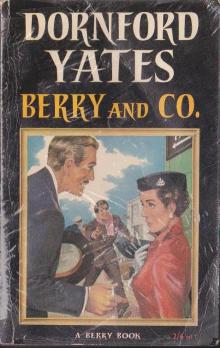 Berry and Co.
Berry and Co.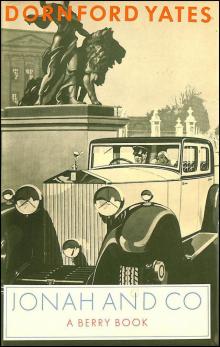 Jonah and Co.
Jonah and Co.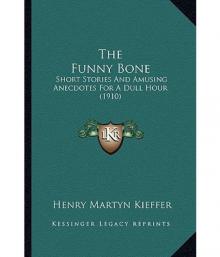 The Funny Bone: Short Stories and Amusing Anecdotes for a Dull Hour
The Funny Bone: Short Stories and Amusing Anecdotes for a Dull Hour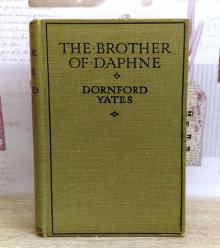 The Brother of Daphne
The Brother of Daphne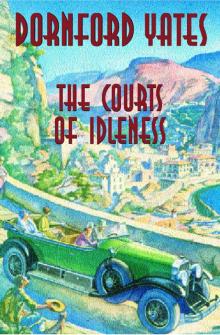 Courts of Idleness
Courts of Idleness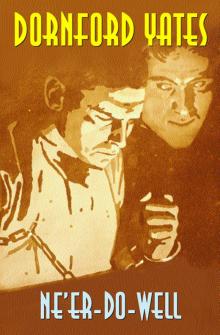 Ne'er Do Well
Ne'er Do Well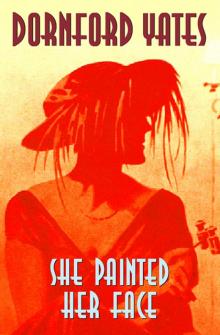 She Painted Her Face
She Painted Her Face Safe Custody and Laughing Bacchante
Safe Custody and Laughing Bacchante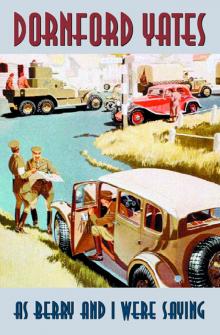 As Berry and I Were Saying
As Berry and I Were Saying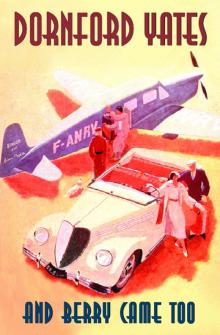 And Berry Came Too
And Berry Came Too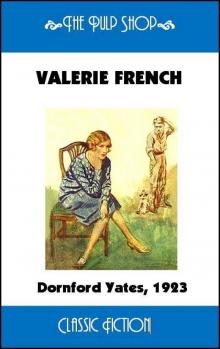 Valerie French (1923)
Valerie French (1923)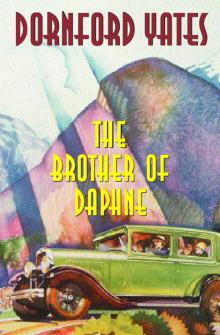 Brother of Daphne
Brother of Daphne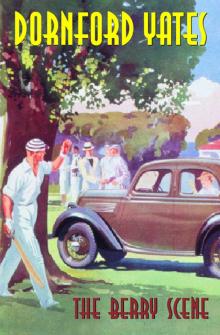 Berry Scene
Berry Scene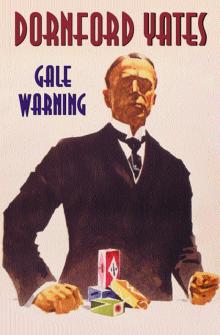 Gale Warning
Gale Warning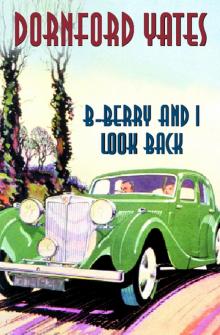 B-Berry and I Look Back
B-Berry and I Look Back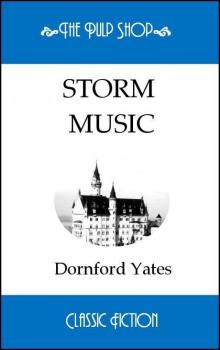 Storm Music (1934)
Storm Music (1934)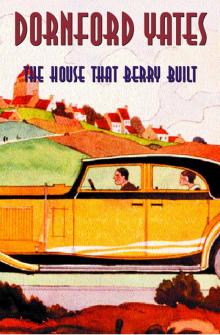 House That Berry Built
House That Berry Built